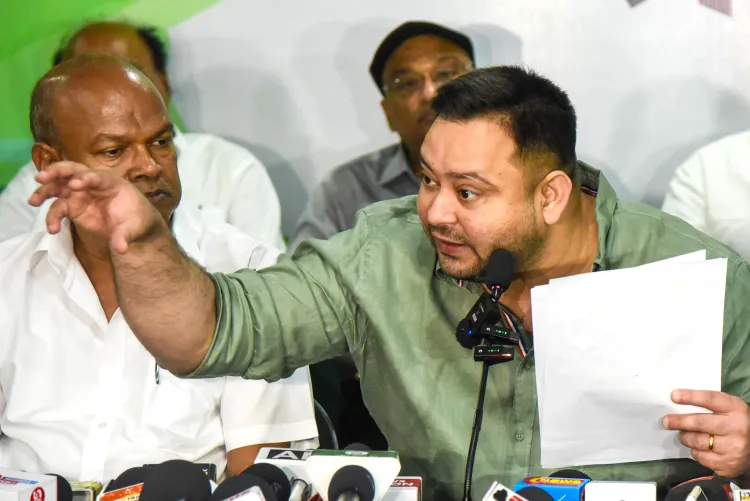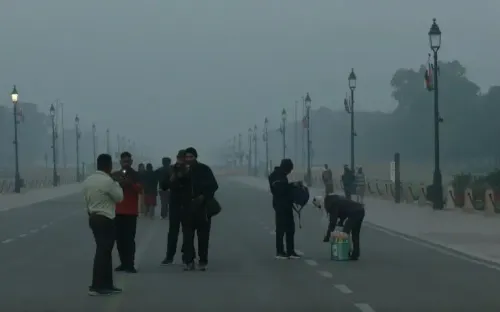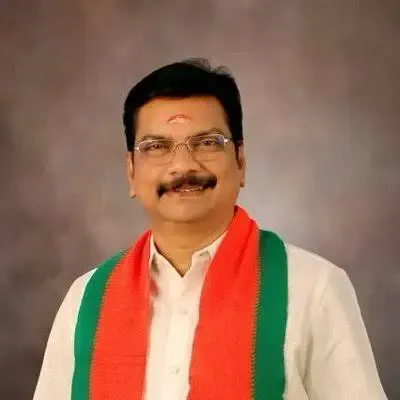Is Tejashwi Yadav Right to Criticize ECI’s Voter List Revision in Bihar?

Synopsis
Key Takeaways
- Tejashwi Yadav criticizes the Election Commission for the rushed voter list revision.
- The revision process could disenfranchise vulnerable populations.
- Documentation requirements are seen as burdensome for young and poor voters.
- The controversy may significantly influence the political landscape in Bihar.
- Grand Alliance is mobilizing support against perceived injustices.
Patna, June 27 (NationPress) As Bihar gears up for the Assembly elections, Opposition Leader Tejashwi Yadav has vehemently criticized the Election Commission (EC) and the state government. He claims that the Special Intensive Revision (SIR) of the voter list during an election year poses a significant threat to democracy and is an effort to undermine the voting rights of the poor and youth.
During a press conference with Bihar Congress President Rajesh Ram, Congress spokesperson Pawan Khera, and CPI (ML) General Secretary Dipankar Bhattacharya, Tejashwi questioned the rationale behind the voter list revision.
“What is the sudden urgency to revise the voter list after 22 years? The last revision in 2003 took two years, but now it's being rushed in just two months,” Yadav stated.
He also pointed out that Bihar is currently experiencing floods, making it extremely challenging for the poor to gather and submit necessary documents, especially since many lack birth certificates, citizenship papers, or even acceptable Aadhaar/MNREGA cards.
Tejashwi connected this action to a broader RSS agenda, alleging: "A senior RSS figure recently questioned the Constitution, and now this plot is being implemented to systematically exclude the poor and youth from the voter list."
He elaborated on the new documentation requirements: Individuals aged 18–20 must provide both their and their parents’ birth certificates and citizenship documents. Those aged 20–39 are required to prove their own and their parents’ citizenship, while individuals aged 39–40 must present self-evidence of citizenship.
Tejashwi contended that these cumbersome documentation requirements aim to disenfranchise young, marginalized, and poor voters.
He further questioned the credibility of the officials overseeing the voter revision, suggesting that the same officers responsible for the 2024 Lok Sabha elections are managing this process, raising concerns about the EC's impartiality.
The Grand Alliance (RJD-Congress-Left) is clearly adopting a confrontational stance ahead of the 2025 Bihar Assembly elections by portraying the voter list revision as anti-poor and undemocratic.
Tejashwi and his allies are mobilizing youth, farmers, and the poor who may feel threatened by exclusion from the electoral process.
This controversy could escalate into a significant election issue, challenging the credibility of the EC and impacting the political landscape of the state as elections approach.










